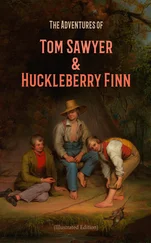1 ...8 9 10 12 13 14 ...45 A CROWD OF THOUGHTS
A fine epitheton of man would be "Lord of fire and light." All other creatures whose existence we perceive are mere alms-receivers of both.
A company of children driving a hungry, hard-skinned ass out of a corn-field. The ass cannot by such weaklings be driven so hard but he will feed as he goes.
Such light as lovers love, when the waxing moon steals in behind a black, black cloud, emerging soon enough to make the blush visible which the long kiss had kindled.
All notions [remain] hushed in the phantasms of place and time that still escape the finest sieve and most searching winnow of our reason and abstraction.
A rosemary tree, large as a timber tree, is a sweet sign of the antiquity and antique manners of the house against which it groweth. "Rosemary" (says Parkinson, Theatrum Botanicum [London, 1640] p. 76) "is a herb of as great use with us in these days as any whatsoever, not only for physical but civil purposes—the civil uses, as all know, are at weddings, funerals, &c., to bestow on friends."
Great harm is done by bad poets in trivialising beautiful expressions and images and associating disgust and indifference with the technical forms of poetry.
Advantage of public schools. [They teach men to be] content with school praise when they publish. Apply this to Cottle and J. Jennings.
Religious slang operates better on women than on men. N.B.—Why? I will give over—it is not tanti !
Poem. Ghost of a mountain—the forms, seizing my body as I passed, became realities—I a ghost, till I had reconquered my substance.
The sopha of sods. Lack-wit and the clock find him at last in the Yorkshire cave, where the waterfall is.
[The reference is, no doubt, to Wordsworth's "Idiot Boy," which was composed at Nether Stowey, in 1798. In a letter addressed to John Wilson of June 5, 1802, Wordsworth discusses and discards the use of the word "lackwit" as an equivalent to "idiot." The "Sopha of Sods" was on Latrigg. In her journal for August, 1800, Dorothy Wordsworth records the making of a seat on Windybrow, a part of Latrigg. Possibly this was the "Sopha of Sods."— Life of W. Wordsworth , 1889, i. 268, 403.]
The old stump of the tree, with briar-roses and bramble leaves wreathed round and round—a bramble arch—a foxglove in the centre.
The palm, still faithful to forsaken deserts, an emblem of hope.
The stedfast rainbow in the fast-moving, fast-hurrying hail-mist! What a congregation of images and feelings, of fantastic permanence amidst the rapid change of tempest—quietness the daughter of storm.
"POEM ON SPIRIT, OR ON SPINOZA"
I would make a pilgrimage to the deserts of Arabia to find the man who could make me understand how the one can be many . Eternal, universal mystery! It seems as if it were impossible, yet it is , and it is everywhere! It is indeed a contradiction in terms , and only in terms. It is the co-presence of feeling and life, limitless by their very essence, with form by its very essence limited, determinable, definite.
TRANS-SUBSTANTIATION
Meditate on trans-substantiation! What a conception of a miracle! Were one a Catholic, what a sublime oration might one not make of it? Perpetual, πανtopical, yet offering no violence to the sense, exercising no domination over the free-will—a miracle always existing, yet perceived only by an act of the free-will—the beautiful fuel of the fire of faith—the fire must be pre-existent or it is not fuel, yet it feeds and supports and is necessary to feed and support the fire that converts it into his own nature.
THE DANGER OF THE MEAN
Errors beget opposite errors, for it is our imperfect nature to run into extremes. But this trite, because ever-recurring, truth is not the whole. Alas! those are endangered who have avoided the extremes, as if among the Tartars, in opposition to a faction that had unnaturally lengthened their noses into monstrosity, there should arise another who had cut off theirs flat to the face, Socinians in physiognomy. The few who retained their noses as nature made them and reason dictated would assuredly be persecuted by the noseless party as adherents of the rhinocerotists or monster-nosed men, which is the case of those αρχασπισται [braves] of the English Church, called Evangelicals. Excess of Calvinism produced Arminianism, and those not in excess must therefore be Calvinists!
ALAS! THEY HAD BEEN FRIENDS IN YOUTH
To a former friend who pleaded how near he formerly had been, how near and close a friend! Yes! you were, indeed, near to my heart and native to my soul—a part of my being and its natural, even as the chaff to corn. But since that time, through whose fault I will be mute, I have been thrashed out by the flail of experience. Because you have been, therefore, never more can you be a part of the grain.
Oct. 31, 1803 AVE PHŒBE IMPERATOR
The full moon glided behind a black cloud. And what then? and who cared? It was past seven o'clock in the morning. There is a small cloud in the east, not larger than the moon and ten times brighter than she! So passes night, and all her favours vanish in our minds ungrateful!
THE ONE AND THE GOOD
In the chapter on abstract ideas I might introduce the subject by quoting the eighth Proposition of Proclus' "Elements of Theology." The whole of religion seems to me to rest on and in the question: The One and The Good—are these words or realities? I long to read the schoolmen on the subject.
A MORTAL AGONY OF THOUGHT
There are thoughts that seem to give me a power over my own life. I could kill myself by persevering in the thought. Mem., to describe as accurately as may be the approximating symptoms. I met something very like this observation where I should least have expected such a coincidence of sentiment, such sympathy with so wild a feeling of mine—in p. 71 of Blount's translation of "The Spanish Rogue," 1623.
Table of Contents
"Home-sickness is no baby-pang."—S. T. C.
THE UNDISCIPLINED WILL
This evening, and indeed all this day, I ought to have been reading and filling the margins of Malthus. ["An Essay on the Principles of Population, &c., London," 1803, 4to. The copy annotated by Coleridge is now in the British Museum.]
I had begun and found it pleasant. Why did I neglect it? Because I ought not to have done this. The same applies to the reading and writing of letters, essays, etc. Surely this is well worth a serious analysis, that, by understanding, I may attempt to heal it. For it is a deep and wide disease in my moral nature, at once elm-and-oak-rooted. Is it love of liberty, of spontaneity or what? These all express, but do not explain the fact.
Tuesday morning, January 10, 1804
After I had got into bed last night I said to myself that I had been pompously enunciating as a difficulty, a problem of easy and common solution—viz., that it was the effect of association. From infancy up to manhood, under parents, schoolmasters, inspectors, etc., our pleasures and pleasant self-chosen pursuits (self-chosen because pleasant, and not originally pleasant because self-chosen) have been forcibly interrupted, and dull, unintelligible rudiments, or painful tasks imposed upon us instead. Now all duty is felt as a command , and every command is of the nature of an offence. Duty, therefore, by the law of association being felt as a command from without, would naturally call up the sensation of the pain roused from the commands of parents and schoolmasters. But I awoke this morning at half-past one, and as soon as disease permitted me to think at all, the shallowness and sophistry of this solution flashed upon me at once. I saw that the phenomenon occurred far, far too early: I have observed it in infants of two or three months old, and in Hartley I have seen it turned up and layed bare to the unarmed eye of the merest common sense. The fact is that interruption of itself is painful, because and as far as it acts as disruption . And thus without any reference to or distinct recollection of my former theory I saw great reason to attribute the effect, wholly, to the streamy nature of the associative faculty, and the more, as it is evident that they labour under this defect who are most reverie-ish and streamy—Hartley, for instance, and myself. This seems to me no common corroboration of my former thought or the origin of moral evil in general.
Читать дальше












